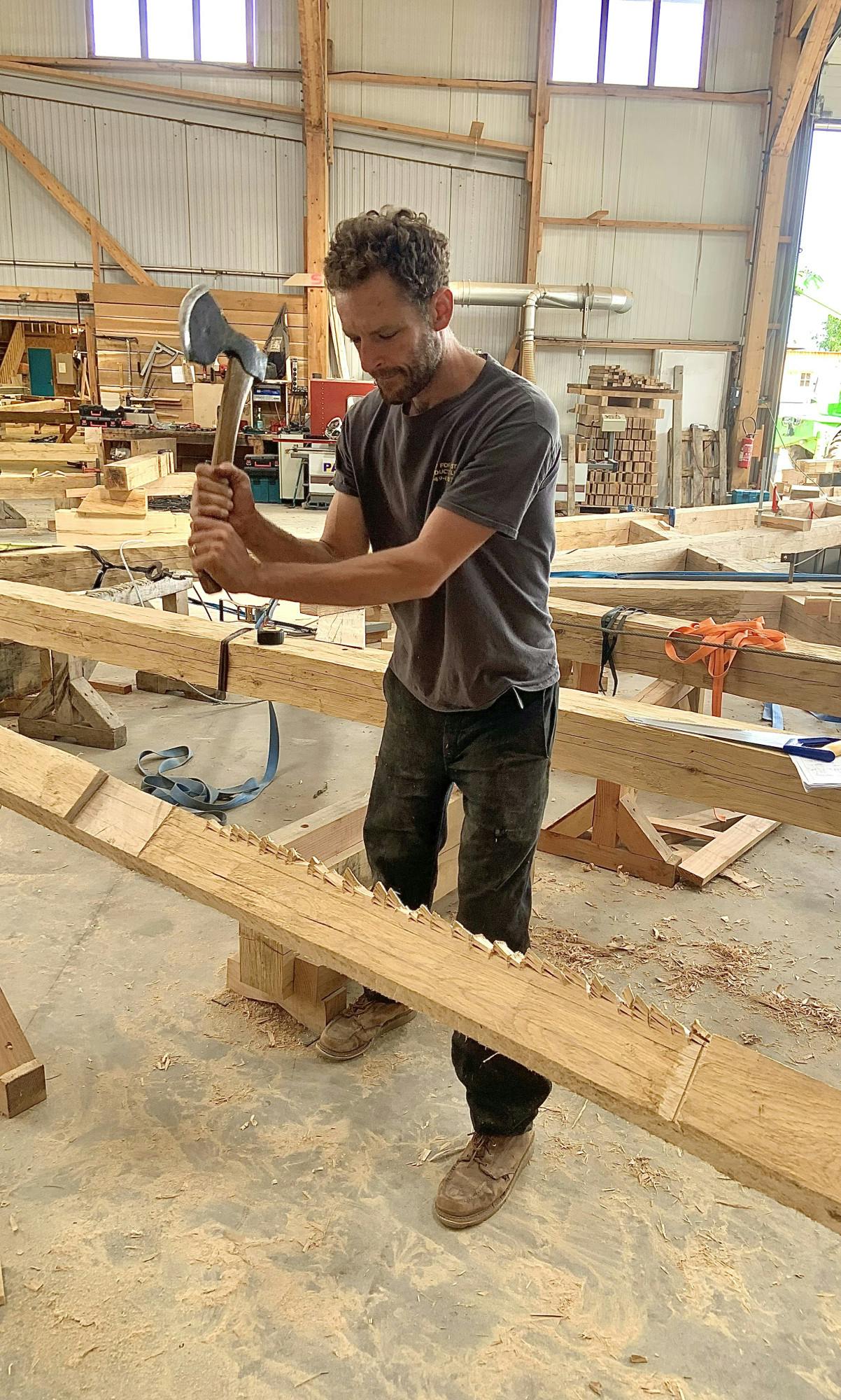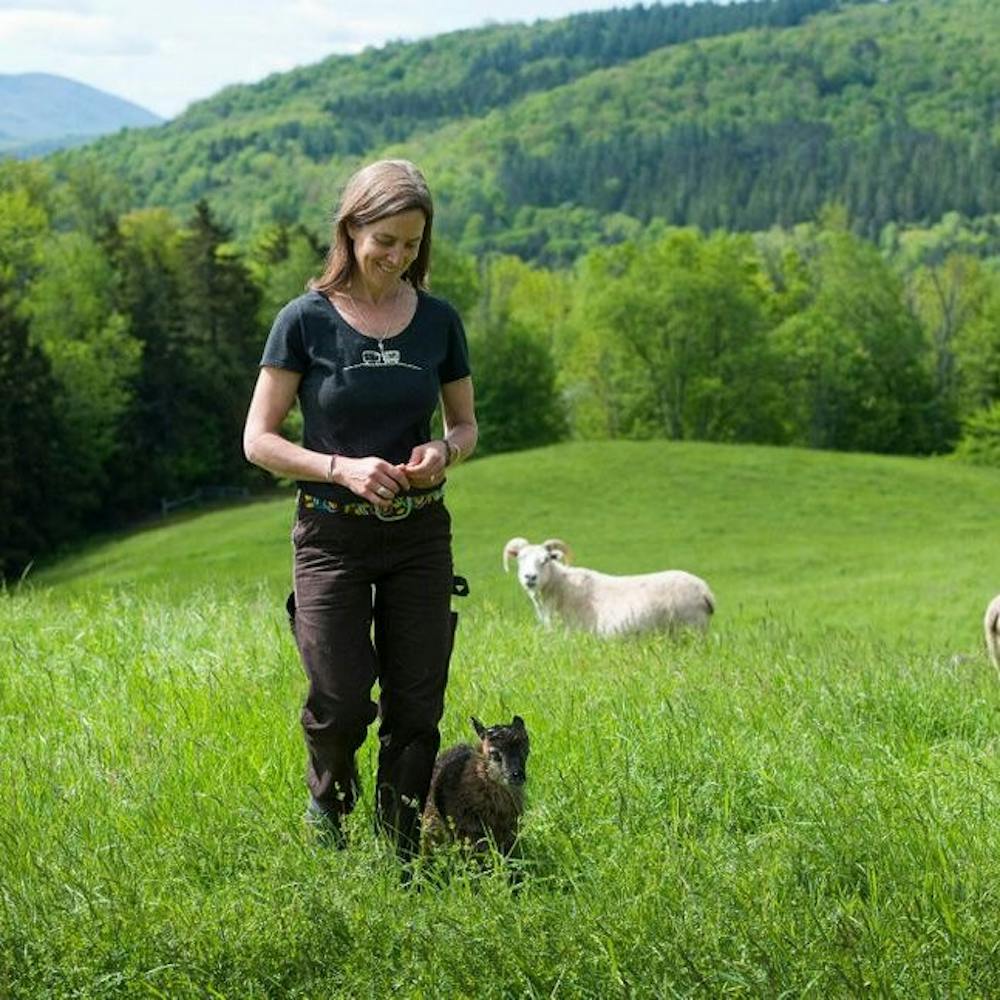In a typical semester, Middlebury hosts no shortage of impressive faculty to teach across a wide range of disciplines. However, Middlebury’s J-Term course offerings present students with an exceptional opportunity to discover unique classes often taught by guest professors with specialized real-world experience and backgrounds that often stray from the academia-centered careers of typical professors. The presence and guidance of these visiting professors allow students to visualize career paths across a multitude of fields, learning and exploring in new ways.
Will Gusakov, a professional timber framer who grew up in Vermont, is teaching “From Forest to Frame,” a class that focuses on timber framing, with the mission of creating a timber farm stand for Mary Hogan Elementary School’s expanding garden education program. Along with local projects, Gusakov is particularly renowned for his work as one of the few Americans on the team to rebuild Notre Dame Cathedral’s medieval roof frames in 2023 after they were destroyed by the destructive structural fire that broke out in 2019. The college invited him to teach a J-Term class after he gave an on-campus lecture about his work on the cathedral last February.

In alignment with highlighting local experience, Gusakov noted that one of his favorite parts of teaching this course has been showing students the connection between architecture, people, traditions and cultures.
“This is a world often neglected in academia… bringing that kind of culture and those kinds of traditions to life and trying to highlight some of those connections is something that I'm pretty passionate about,” Gusakov said.
His ultimate goal is for students to feel more connected to and empowered by their abilities to create and that they find personal inspiration and engagement in the topic.
“This class [is providing] the chance to work more with my hands, a rarity at institutions like Middlebury, while also learning from a true expert craftsman. It’s a once in a lifetime opportunity to work with a professor like Will,” said Grace Mumford ’25, who is currently taking his course.
Though this is the first class Gusakov has taught at Middlebury, students think he has proved to be adept at incorporating core aspects of the Middlebury learning experience into his course, prioritizing student connection and engagement with the Vermont landscape.
Architectural Studies major Tyler Hadar ’25 reflected on the benefits of interacting with a non-traditional instructor.
“I know that I will now have a really strong connection with somebody who is well-known and well-connected in the field. So from a networking standpoint, this is incredible,” Hadar said, a sentiment which Mumford echoed.
“Not only is Will a master craftsman, but he is one of the most patient and effective professors I’ve had,” she said.
In an entirely different discipline, Helen Whybrow brings journalistic expertise from her tenure as an Editor for W.W. Norton and Orion Magazine to her course “When Truth Meets Craft,” a literary journalism class centered around the role of creativity and the use of the first-person in journalism, for the second year in a row. In addition to being an editor, Whybrow is a freelance writer and often draws creative inspiration from her work as an organic farmer in the Mad River Valley of central Vermont. Her new non-fiction book, “The Salt Stones: Seasons of a Shepherd's Life” came out in June.
While Middlebury boasts an impressive selection of creative writing courses, it often lacks courses in the realms of literary nonfiction and journalism. One of Whybrow’s students, Eliza Tiles ’27.5, mentioned how Whybrow’s class is more applicable to writing about the real world than most creative writing classes.
“We don't have a lot of journalism opportunities here on campus, so it [is] really nice to be able to take advantage of that, and use her knowledge as a journalist and an editor to kind of get that real-world experience,” Tiles said.
This approach has been particularly effective for student Ruby Salisbury ’27 who had previously focused solely on creative writing. For her final project for the class, Salisbury is highlighting Middlebury’s Memorial Trees and has found a balance between writing a nonfiction piece and sustaining a personal connection to the subject matter. Whybrow’s guidance has allowed Salisbury and other students to embrace this nuanced style of writing.
Beyond bridging the gap between literary nonfiction and personal experience, Whybrow hopes that this class will help her students become more inclined to step out of their comfort zones.
“I want students to feel like they can push themselves, take risks, experiment and be curious,” Whybrow said.
In an increasingly digital and disconnected age, emphasis on personal stories and individual voices is critical. A class like Whybrow’s stands to give these students a new appreciation for quality writing and authentic storytelling.
The dedication and enthusiasm of these visiting professors are apparent in their thoughtfully curated course curricula, which allow students to explore practical applications of skills outside of the traditional Middlebury course catalog. This J-Term, Middlebury campus continues to be a hub for creativity, experience and expertise.





